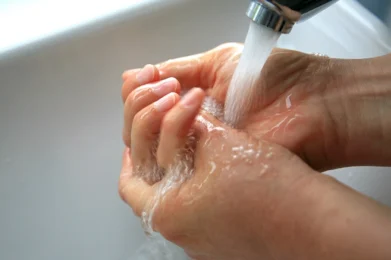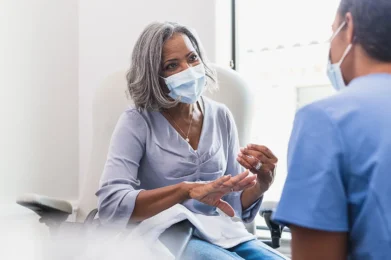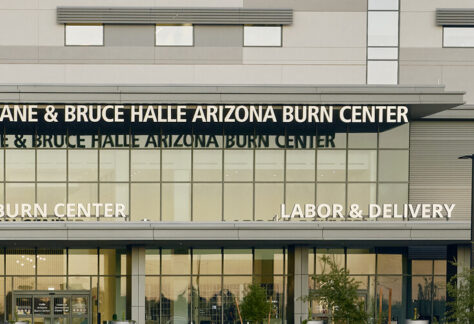In This Article:
- Cold sores are formed by the herpes simplex virus (HSV) and can be caused by stress, fatigue, illness, allergies, hormonal fluctuations, food allergies and sun or cold exposure. Roughly 90% of people get a cold sore at some point in their lives.
- Chapped lips, which are often confused with cold sores, are usually caused by winter dryness and can lead to extreme peeling, irritation, pain, cracked lips and bleeding.
- To treat chapped lips, apply lip balm, stay hydrated and wait it out. There is no cure for HSV, but you can shorten the life of a cold sore with ice and over-the-counter medications like Abreva. Keep your lips to yourself when you have a cold sore to avoid spreading the virus.
The differences between chapped lips and a cold sore are that cold sores generally begin with pain or burning sensations on the lip, followed by the formation of fluid-filled blisters that are localized to one or a few areas. Chapped lips will feel dry and tender but across the entirety of the lips, and generally, no blisters will form.
A cold sore and chapped lips can look similar at first, but they each respond best to different treatments, so it’s essential to identify them correctly. If you do have a cold sore on your lips, it’s important to avoid spreading the virus by keeping your lips to yourself. If you have chapped lips, you’ll just want to apply some lip balm, wait patiently, and avoid licking your lips. According to the World Health Organization, here is what you need to know about cold sores.
Cold Sores
Although cold sores usually form around and inside the mouth, it is possible to get them on your cheeks, nose, and eyes. Once someone has the virus, there are several possible triggers that can cause cold sores to appear. These are:
- Stress
- Fatigue
- Illness
- Hormonal fluctuations
- Food allergies
- Sun exposure
- Cold exposure
The majority of adults in the US have some form of the herpes simplex virus. Roughly 90% of all people get at least one cold sore in their lifetime. The symptoms are usually the most severe the first time. When they do appear, cold sores usually have the same symptoms, including:
- Tingling
- Blistering
- Weeping
- Crusting
- Healing
Cold Sore Treatment
Unfortunately, there is no known cure for HSV. However, there are steps to take that can shorten the healing time as well as significantly lower your chances of having another outbreak. Applying an over-the-counter treatment such as Abreva or other lip creams daily can ease symptoms and shorten the duration of the outbreak. You can also apply ice or take anti-inflammatory drugs. Always remember to avoid touching or licking your lips when you have a cold sore outbreak.
Chapped Lips
The winter air and cold winds are notorious culprits for sucking the moisture out of your lips. Winter dryness can lead to chapped lips, extreme peeling, irritation, pain, and in some cases even cracked lips and bleeding. In order to treat chapped lips, simply apply lip balm when needed, drink plenty of water, or apply topical ointment such as aloe vera or coconut oil, which both help with moisturizing.
When Should You See a Doctor
If this is your first time experiencing cold sores, you may be alarmed. However, these painful blisters are usually best treated at home with the above-mentioned remedies. If you experience repeated breakouts, schedule an appointment with your primary care provider about possible antiviral medications such as acyclovir (Zovirax), famciclovir (Famvir), and valacyclovir (Valtrex). These medicines help reduce the chances of recurring outbreaks, though there is no 100% guarantee they will stop forever.
If you’d like to know more about cold sore treatment options, contact Valleywise Health today. Our primary care physicians are friendly, knowledgeable and ready to assist you.
Sources
1. https://www.who.int/news-room/fact-sheets/detail/herpes-simplex-virus







